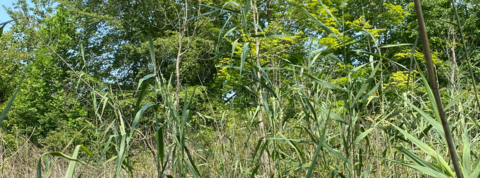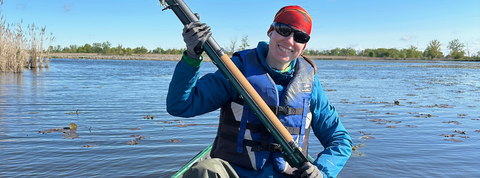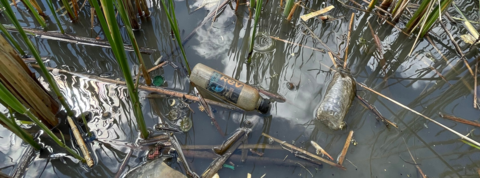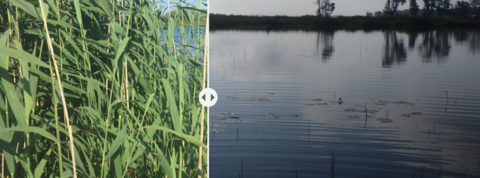Welcome to the Waterloo Wetland Laboratory
The focus of our lab is on aquatic ecology, restoration ecology, and landscape ecology. We look at the relationships between plants, invertebrates, and birds with their abiotic environment; both in terms of ecosystem properties and processes. In particular, we focus on the response of these biotic communities and their environmental correlates to human disturbance.
We are recruiting talented, bright, hard-working, self-motivated students with solid communication skills. If this describes you and you are interested in the type of research questions we address, please look at our Biology Department program requirements and contact Dr. Rooney: rrooney(at)uwaterloo.ca
The Waterloo Wetland Laboratory members acknowledge that we live and work on the traditional territory of the Neutral, Anishinaabeg and Haudenosaunee peoples. The University of Waterloo is situated on the Haldimand Tract, the land promised to the Six Nations that includes ten kilometres on each side of the Grand River.
News
Liahm successfully defends their MSc thesis
We are thrilled to announce that Liahm Ruest successfully defended their MSc thesis this morning!
Please join us in congratulating Liahm on this incredible achievement!
New preprint available
A new preprint for an article on invasive plants and species at risk is now available online. The article, titled "High co-occurrence of invasive wetland plants and species at risk in Canada’s biodiverse Carolinian" can be accessed on bioRxiv.
Gab successfully defends their PhD thesis
We are thrilled to announce that Gab Izma successfully defended their PhD thesis this morning! We are so incredibly proud of them and the tremendous amount of work they put into their thesis.
Please join us in congratulating Gab on this incredible achievement!





